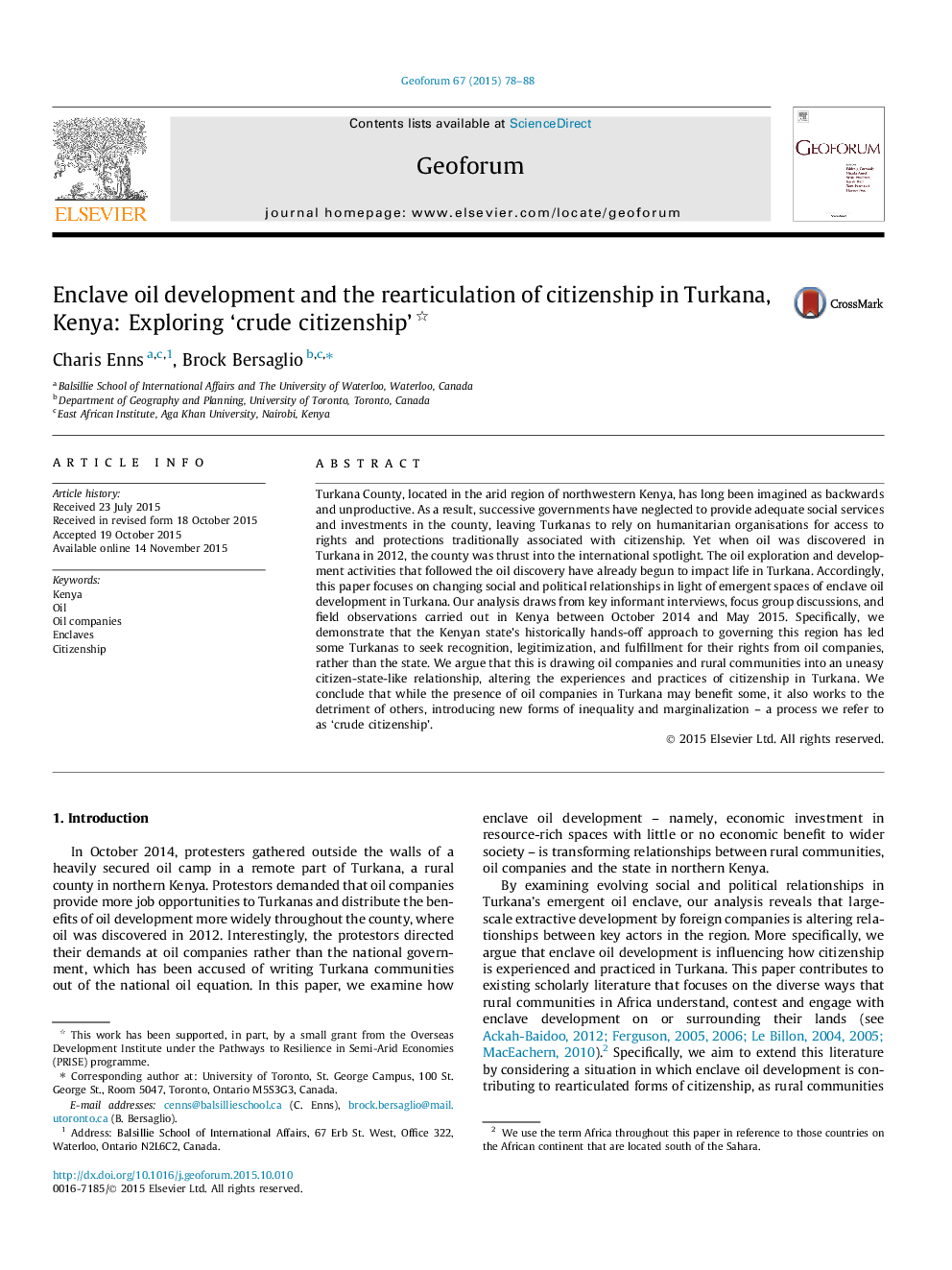| Article ID | Journal | Published Year | Pages | File Type |
|---|---|---|---|---|
| 5073742 | Geoforum | 2015 | 11 Pages |
Abstract
Turkana County, located in the arid region of northwestern Kenya, has long been imagined as backwards and unproductive. As a result, successive governments have neglected to provide adequate social services and investments in the county, leaving Turkanas to rely on humanitarian organisations for access to rights and protections traditionally associated with citizenship. Yet when oil was discovered in Turkana in 2012, the county was thrust into the international spotlight. The oil exploration and development activities that followed the oil discovery have already begun to impact life in Turkana. Accordingly, this paper focuses on changing social and political relationships in light of emergent spaces of enclave oil development in Turkana. Our analysis draws from key informant interviews, focus group discussions, and field observations carried out in Kenya between October 2014 and May 2015. Specifically, we demonstrate that the Kenyan state's historically hands-off approach to governing this region has led some Turkanas to seek recognition, legitimization, and fulfillment for their rights from oil companies, rather than the state. We argue that this is drawing oil companies and rural communities into an uneasy citizen-state-like relationship, altering the experiences and practices of citizenship in Turkana. We conclude that while the presence of oil companies in Turkana may benefit some, it also works to the detriment of others, introducing new forms of inequality and marginalization - a process we refer to as 'crude citizenship'.
Related Topics
Social Sciences and Humanities
Economics, Econometrics and Finance
Economics and Econometrics
Authors
Charis Enns, Brock Bersaglio,
